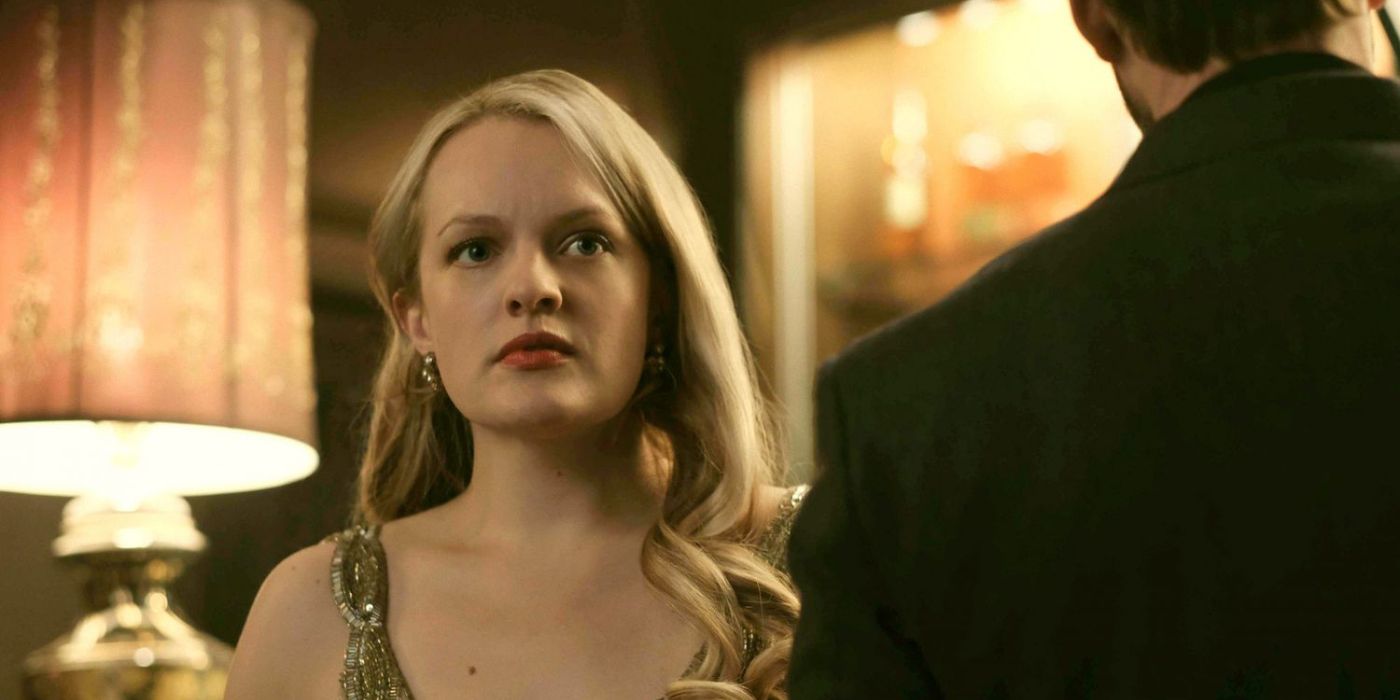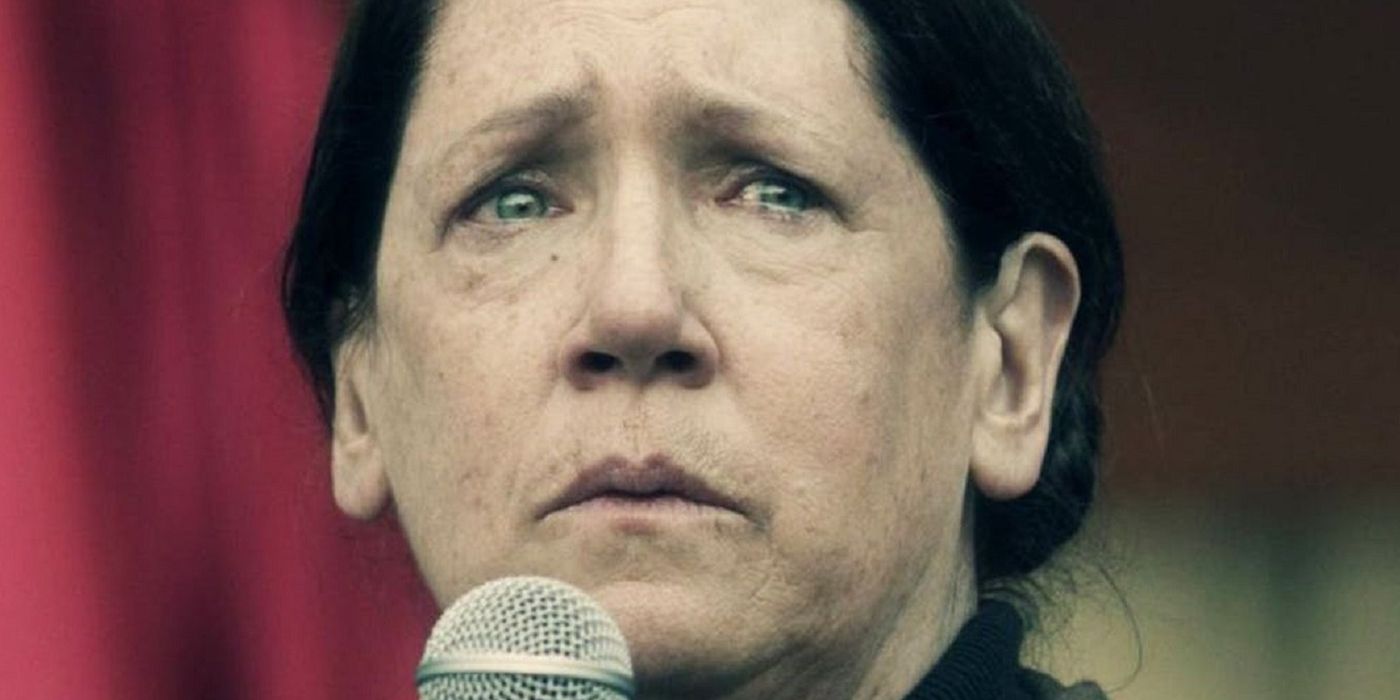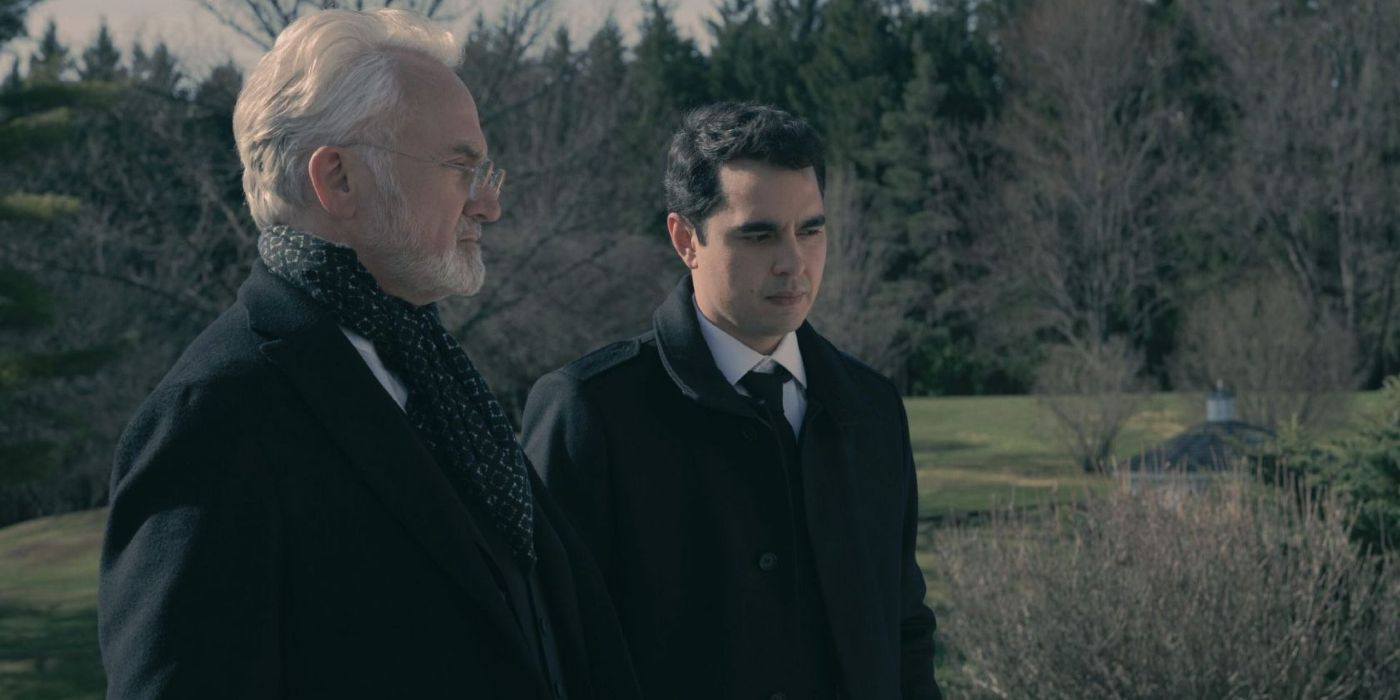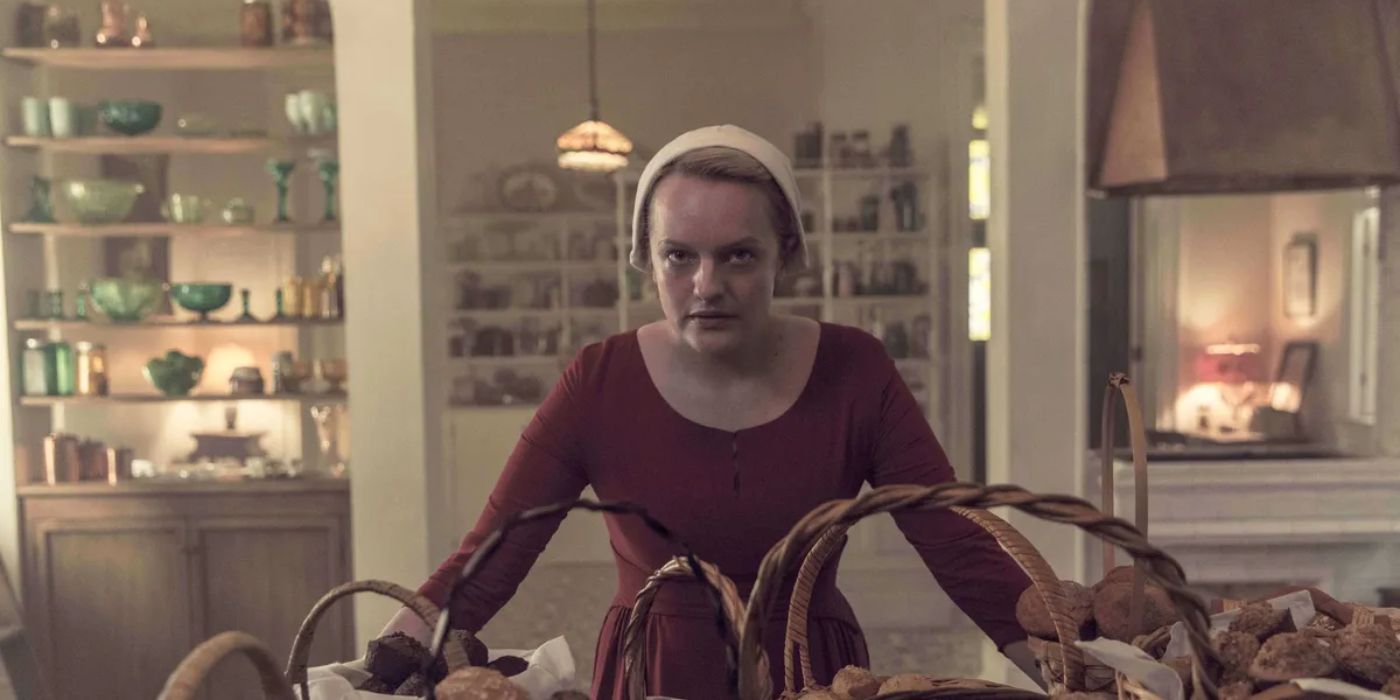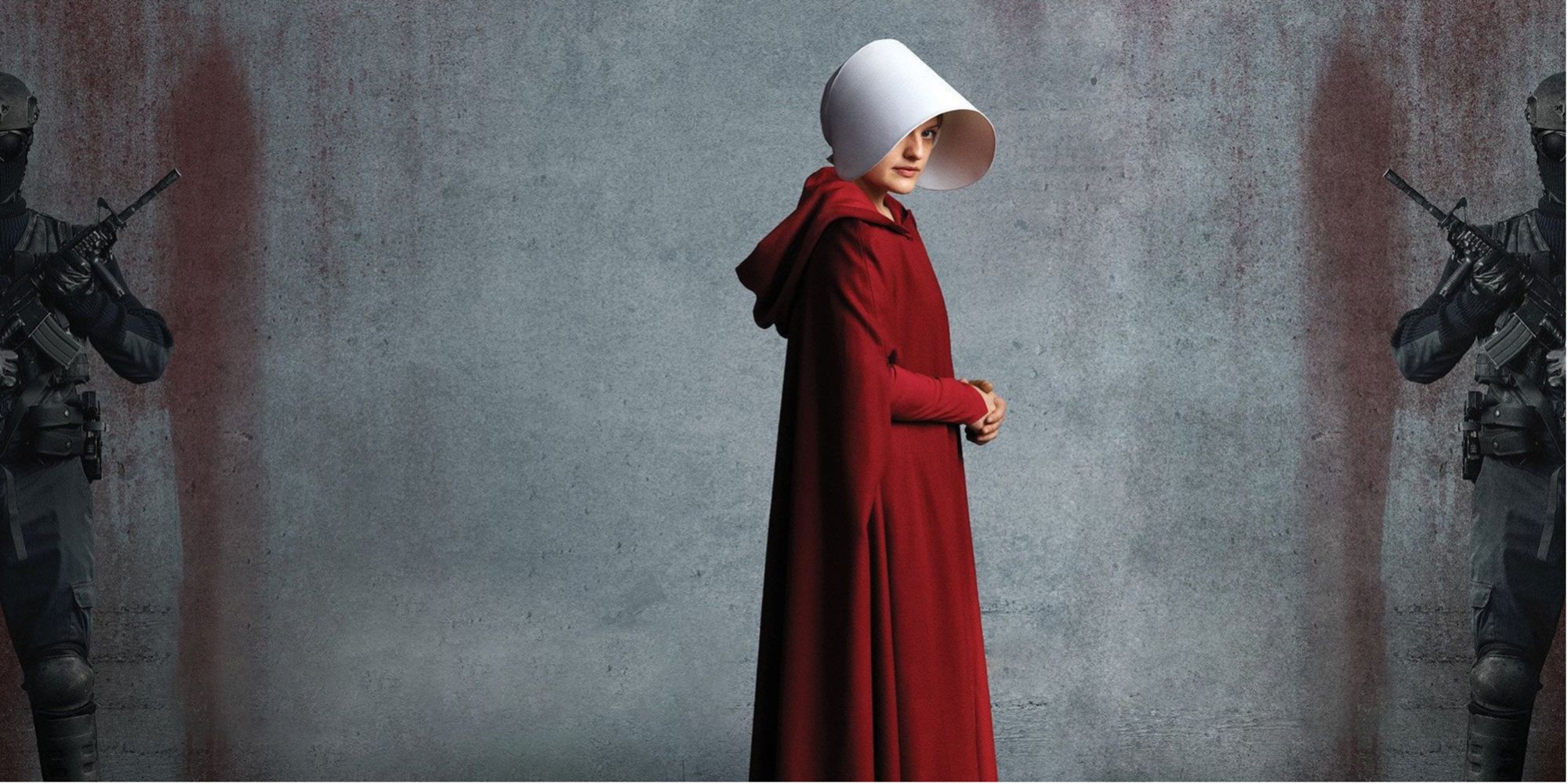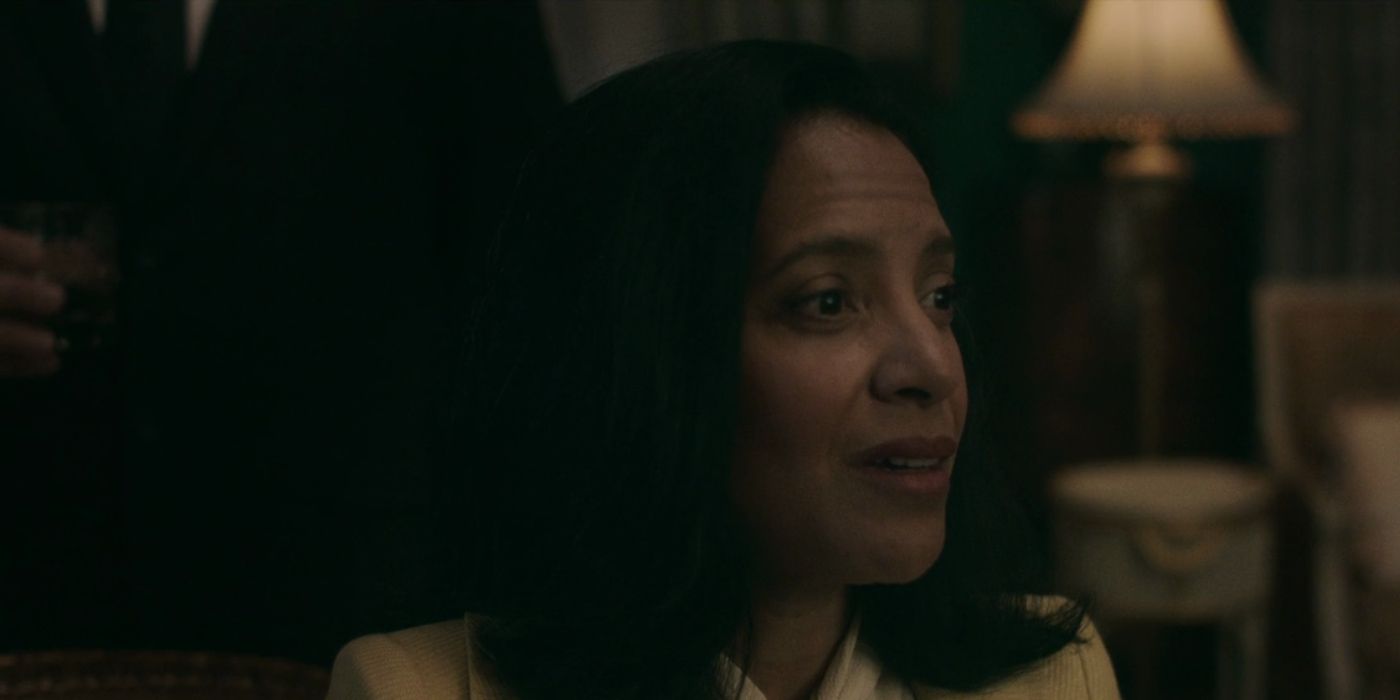15 Best ‘The Handmaid’s Tale’ Quotes, Ranked

Based on Margaret Atwood‘s novel of the same name released in 1985, The Handmaid’s Tale presents a dystopia in which in response to declining birth rates, fertile women are forced to live as concubines, known as handmaids, for wealthy, powerful men and their wives in a newly formed totalitarian country called Gilead in what used to be the United States.
The series is centered on handmaid June Osborne as she survives in Gilead and fights to find her daughter and escape, and it has always managed to feel timely. It first premiered on Hulu in 2017.
Atwood’s original novel featured plenty of memorable quotes, some of which have become an important part of the series, as well. But there are also a number of quotes not included in Atwood’s work that stand out, often said by June as part of her voiceover narration, especially in the show’s early seasons. The best of the quotes touch on not just the politics of Gilead but also speak to something greater about everything from humanity to motherhood.

- Release Date
-
2017 – 2025-00-00
- Network
-
Hulu
- Showrunner
-
Bruce Miller
- Directors
-
Mike Barker, Kari Skogland, Daina Reid, Reed Morano, Floria Sigismondi, Jeremy Podeswa, Kate Dennis, Richard Shepard, Amma Asante, Christina Choe, Deniz Gamze Ergüven, Bradley Whitford, Dearbhla Walsh, Liz Garbus
- Writers
-
Kira Snyder, Eric Tuchman, Yahlin Chang, John Herrera, Jacey Heldrich, Dorothy Fortenberry, Marissa Jo Cerar, Lynn Renee Maxcy
15
“I don’t need oranges. I need to scream. I need to grab the nearest machine gun.”
June Osborne (Season 1, Episode 1)
While The Handmaid’s Tale is a hard-hitting dystopian drama known for its scathing thematic might and its striking and confronting content, it is also a series that flaunts an acidic, wry wit on occasion. Such an example is seen in The Handmaid’s Tale‘s pilot episode when June is begrudgingly looking at the fresh produce in a supermarket with other Handmaids.
Cold and disparaging, she glares at the fruit as she contemplates the purpose she is forced to fulfill. All the while, one of her peers stands next to her, praising the bounty and suggesting that June should take some oranges. On the surface, June numbly agrees, but her true stance is revealed through her voice-over narration as she affirms that a violent and enraged outburst is what she truly yearns for in the moment. — Ryan Heffernan
14
“A rose is a rose, except here. Here it has to mean something.”
June Osborne (Season 1, Episode 3)
The Handmaid’s Tale is a series rich with symbolism and hidden meaning. Evidently, so too is the story world in which the narrative transpires. The Season 1 episode “Late” is a pivotal one for June, with the abuse and humiliation she faces while being interrogated at the hands of Aunt Lydia (Ann Dowd). However, Serena Joy (Yvonne Strahovski) soon swoops in, not only sparing her from Lydia’s tirade, but treating her surprisingly well also.
June is immediately wary of such niceties, with her alertness truly piqued when Serena presents her with a rose during an alarmingly pleasant meal. Meditating on the course and transactional society Gilead has instilled, and pondering with great angst what this display of generosity and friendship could mean, June’s internal monologue is both sharp and foreboding. — Ryan Heffernan
13
“It’s gonna end the same no matter what you do, so there’s no point trying to be tough or brave. Brave isn’t part of any of this. Everybody breaks. Everybody.”
Nick Blaine (Season 1, Episode 3)
Another excellent and damning quote from Handmaid Tale‘s Season 1’s third episode, this memorable and morbid warning is one of the most blunt and unceremonious affirmations of what the new world order of Gilead truly is. In a discussion with Nick Blaine (Max Minghella), June mentions the mystery surrounding Ofglen’s disappearance, a barbed retort intended to pry at Gilead’s totalitarian regime and their inhumane measures.
Nick, realizing that June is different from many other Handmaids, opts not to try to warm her over to their way of thinking with propaganda lines or government mottos. Instead, he curtly, and quite defeated, tells her how hopeless the situation is for her. His brief “Everybody breaks” monologue is direct, pointed, and quite unforgettable. — Ryan Heffernan
12
“A perfect gift. A girl trapped in a box. She only dances when someone else opens the lid, when someone else winds her up. If this is a story I’m telling, I must be telling it to someone. There’s always someone, even when there is no one. I will not be that girl in the box.”
June Osborne (Season 1, Episode 8)
The eighth episode of Season 1, “Jezebels,” sees June travel with Commander Waterford (Joseph Fiennes) and Nick to an underground brothel in Boston, where the group encounters the establishment’s prostitutes, known as “jezebels.” While portions of the episode explore Nick’s backstory, much of it is preoccupied with using the moral controversies surrounding sex work to re-hone the series’ primary focus on the Handmaids and their servitude.
When Serena presents June with a ballerina music box as a gift, the emphasis on the role the Handmaids play becomes clearer once again. The idea of a dancing amusement, an emotionless toy that can be wound up for but a few moments of intrigue before being shut up until the next use, is a pointed allegory. June’s resolute defiance of not being such an object further imbues her with an empowering drive of rebellion. — Ryan Heffernan
11
“The world can be an ugly place. But we cannot wish that ugliness away. We cannot hide from that ugliness.”
Aunt Lydia (Season 1, Episode 1)
Aunt Lydia’s impassioned speech in the series pilot, one directed at the values and structure of the former United States of America, unsurprisingly bears more relevance to the current state of Gilead. Brilliantly portrayed by Ann Dowd, Lydia herself is a warped and twisted woman who is not only compliant in the evil of the tyrannical new regime, but seemingly a staunch supporter of it, but just because this is true doesn’t mean her words shouldn’t be heeded.
In a general sense, reflections on unpleasant pasts are paramount for nations to continue to build and develop, to grow, connect, and prosper over time. Such revisions can be painful and even shameful to the way we live now, but it is a grotesque disservice to history to hide them away because they are unpleasant. Aunt Lydia may not be the beacon of sage council, but her allegorical speech does strike a chord with people today. — Ryan Heffernan
10
“Can’t we all agree, gentlemen, that it’s embarrassing to be running a country in which people are constantly trying to escape?”
Commander Lawrence (Season 5, Episode 8)
In “Motherland,” Lawrence (Bradley Whitford) pitched his idea for New Bethlehem to June (Elisabeth Moss), tempting her with the possibility of a reunion with Hannah there, and June later received information about Hannah. Meanwhile, Serena (Yvonne Strahovski) hit rock bottom while separated from Noah in Toronto. While struggling with anti-refugee sentiment, including graffiti outside their home, Luke (O. T. Fagbenle) proposed moving somewhere less hostile, while June was reluctant because of her determination to get Hannah back to them.
Commander Lawrence was one of the few men who regretted at least some aspects of the creation of Gilead—in an effort to save humanity, things spun out of control, leading to something he didn’t truly want. In an attempt to mitigate the damage, he helped June and tried to get his peers to acknowledge Gilead’s flaws. The stream of people desperate to get out of Gilead wasn’t a good look.
9
“No mother is ever completely a child’s idea of what a mother should be. And I suppose it works the other way around as well.”
June Osborne (Season 2, Episode 3)
The relationship between June and her mother—who June learned was sent to the Colonies—was explored through flashbacks in “Baggage.” June’s mother disapproved of her choices in job and partner and, as one of the few who saw what was happening to the country, felt June should be fighting back instead. In the present, June made progress in her attempt to escape into Canada, only to get captured in the end. Meanwhile, Moira’s (Samira Wiley) work with refugees forced her to confront her trauma and find ways to cope.
The Handmaid’s Tale has often dealt with the theme of motherhood, and “Baggage” addressed that head-on with June’s complicated relationship with her mother. June’s comments about motherhood took on the familiar territory of perfectionism as a parent and were presented in part from a child’s perspective, touching on the expectations children have of their parents, mothers in particular. But they also explored the reverse, the idea that parents also have expectations for their children which are also not always in line with reality.
8
“It’s June. You know my f*****g name.”
June Osborne (Season 2, Episode 4)
After nearly escaping to Canada, June faced punishment at the hands of Aunt Lydia, but due to June’s pregnancy, Aunt Lydia (Ann Dowd) could only go so far in the Season 2 episode “Other Women.” When June returned to the Waterfords’ home, Serena enjoyed a baby shower, leading the tension between the two women to become even worse.
Meanwhile, flashbacks showed the repercussions of Luke’s affair with June, including the role it played in June becoming a handmaid.
A crucial part of the control in The Handmaid’s Tale was the way women, handmaids especially, were stripped of their identities. One of the most obvious—and dehumanizing—ways this was done was to give handmaids new names based on their Commanders, so June became Offred, or “of Fred,” solidifying that they were essentially the Commanders’ property. Using their actual names became a form of rebellion, and in one of June’s many clashes with Aunt Lydia, she insisted she use it.
7
“It’s been five years since we had our children torn away from us. An eternity… We’ve missed everything. The steps. The smiles. The tragedies.”
June Osborne (Season 3, Episode 10)
In “Witness,” June started piecing together an ambitious plan to get children out of Gilead and into Canada with the help of Lawrence, his wife, and the Marthas—and she learned of the Marthas’ way of using baked goods to secretly deliver messages to each other when they communicated that they wouldn’t be able to get mood-stabilizing drugs for Lawrence’s wife. Meanwhile, Fred enforced changes to the Waterford household and made sure they went through with the Ceremony.
June’s comments in “Witness” also dealt with motherhood, but they were also more focused on the passage of time. For the mothers of Gilead who were separated from their children, five years felt like much longer, and June’s observations touched on how much the children changed in those five years and how much they really missed, from milestones to something as simple as seeing their children smile. It’s a reminder that for all the horrors endured in Gilead, the loss of their children was among the worst.
6
“There’s no such thing as a sterile man anymore. There’s only women who are fruitful and women who are barren.”
June Osborne (Season 1, Episode 4)
As a form of punishment, Serena forced June to stay in her room for nearly two weeks, and out of boredom, June examined every inch, including the closet, where she found the phrase “nolite te bastardes carborundorum” scratched into the wall. As she examined it while lying on the floor, she was interrupted by Rita (Amanda Brugel), who thought June had harmed herself. June lied about what she was doing and claimed she passed out, prompting a visit to the doctor.
Gilead and its leaders—men—were seemingly willing to do anything and everything to maintain power and control over women, including clinging to illusions about the cause of rising infertility. They would never admit that it was more likely the men who were infertile, not women. Instead, they ignored the possibility entirely and valued women according to whether or not they were fertile, or seemed to be, and used that as an excuse to treat them as less than human.
5
“Never mistake a woman’s meekness for weakness.”
Ambassador Castillo, quoting Serena (Season 1, Episode 6)
The ambassador to Mexico (Zabryna Guevara) visited Gilead in “A Woman’s Place,” leading to the handmaids performing labor like scrubbing blood from public places to present a more sanitized version of Gilead. Ambassador Castillo had questions for June in particular, and although she lied at first and claimed she was happy in Gilead, she later admitted the truth about what was happening. She also learned that, although she had assumed Luke was shot and killed when they were captured, he was actually alive.
“A Woman’s Place” provided great insight into Serena’s character, especially who she was before Gilead, and made clear just how much Serena had lost, too, although that didn’t excuse her behavior. Castillo repeated Serena’s own words about women, reminding her of her past and contrasting it with life in Gilead. But those words didn’t just apply to Serena—they also applied to June, who complied with Gilead’s laws to survive but was working hard to change things.
4
“They should never have given us uniforms if they didn’t want us to be an army.”
June Osborne (Season 1, Episode 10)
In the Season 1 finale, “Night,” Serena confronted June and Fred (Joseph Fiennes) about their relationship—she forced June to take a pregnancy test, which was positive, and told Fred the baby was most likely not his. Meanwhile, Moira and Luke reunited in Canada. The season ended on a cliffhanger, much like Atwood’s novel, as a group of secret police known as Eyes escorted June from the Waterford household and drove away with her in the back of a van.
As the season progressed, June became bolder—more determined to fight and make it out of Gilead and less inclined to simply accept Gilead as her new reality. Some, though not all, of her fellow handmaids were just as determined to fight back, leading June to see their red uniforms in a new light. Rather than a symbol of their oppression, they instead became a sign of uprising and rebellion.
3
“They said it would be temporary. Nothing changes instantaneously. In a gradually heating bathtub, you’d be boiled to death before you knew it.”
June Osborne (Season 1, Episode 3)
In “Late,” June and Serena visited Janine (Madeline Brewer) and her baby. The visit prompted June to think back to the early days, as things began to shift before Gilead was created and she and Moira attended protests as women were being stripped of their rights—most notably in “Late,” they were fired from their jobs as their bank accounts were frozen, and all assets transferred to their husbands or closest male kin. June also learned what became of the original Ofglen.
“Late” offered a harrowing look at the brutality of Gilead, as though June’s perspective wasn’t enough. In her voiceover, June commented on the gradual shift towards Gilead, including how people’s complacency helped lead to its creation and how even extreme actions went unchallenged under the guise of being temporary measures for everyone’s benefit. It was a lesson June learned too late, but it was also a mistake she would never repeat.
2
“Better never means better for everyone. It always means worse for some.”
Fred Waterford (Season 1, Episode 5)
In the Season 1 episode “Faithful,” Serena, suspicious Fred was infertile, suggested that June sleep with Nick (Max Minghella) in an attempt to get pregnant, while June and Fred continued their secretive games of Scrabble in his office. Meanwhile, flashbacks showed the unconventional beginning of June’s relationship with Luke—he was married to another woman at the time, and her role in his adultery is what led to her being designated a handmaid in Gilead.
Fred’s quote about improvement seemed insightful at first, touching on the way systems can fail people and how improvements are never perfect. But it was chilling coming from Fred, a Commander, because of the way he and other men—and to a certain extent, their wives—benefitted at the expense of women overall, from the handmaids forced to live with them and have their children to the ways even Commanders’ wives were stripped of rights.
1
“Nolite te bastardes carborundorum. Don’t let the bastards grind you down.”
June Osborne (Season 1, Episode 4)
Serena banished June from her room for nearly two weeks, and as June’s mental state became more fragile, she thought back to her time with Moira at the Red Center, where Moira scratched graffiti in a bathroom stall in part as a message to let others in the future know they weren’t alone. Similarly, in the closet of her room, June found the phrase “nolite te bastardes carborundorum” carved into the wall, put there by Waterford’s previous handmaid.
“Nolite te bastardes carborundorum” was a famous Latin phrase from Atwood’s original book, so it was exciting but not surprising when it turned up in the series. Translated to, “Don’t let the bastards grind you down,” it was something of a motivational rallying cry from June and a reminder to keep fighting rather than letting Gilead win. As Moira noted in flashbacks, a reminder that June wasn’t alone. Tragically, though, it wasn’t as helpful to the first Offred, who took her own life.




